Graham Reid | | 9 min read
James Brown: Get on the Good Foot
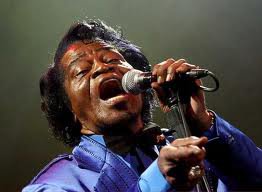
We go through a very polite Mr Bobbitt, James Brown's business manager.
He warns "everything with him is 'Mister' and do not speak about his personal business or his family affairs".
It isn't the last we hear from Mr Bobbitt. Initially there is some confusion when Mr Brown doesn't understand a question and later electronic interference briefly drowns us out.
But we spoke to Mr Brown at home and he was "getting ready to get on tour. We're going to have great time down there.
"We gonna bring you some funk! We gotta pretty good-sized group, a big funky group."
Can I ask what we might expect because your last album The Next Step moved slightly into hip-hop funk.
You gonna get James Brown. Period. Across the board. All my material. We take it from different parts and it comes over a different sound.
Did you feel you were moving into a slightly new style, the next step?
I don't push hip-hop out so much but whatever the feeling brings at that time.
James Brown is a big business. Do you spend much time on that, spending more time with lawyers than musicians?
No, I'm caught just like everybody else. I invested a lot and took my loss and keep on workin'.
We gotta keep set in one direction and I have Mr Bobbitt to handle my personal business until it gets to that point I have to be there in person. I don't really have no problem.
When you look around do you see a lot of younger bands, like Black Eyed Peas for example, who have your influence?
Well, everybody has got a little bit from me over the years and when I hear one it don't really bother me, it makes me feel good that I was able to contribute something to this industry.
How do you feel about this music business now? It's very diverse but when you came out you could get an audience - black, white, right across. Nowadays it doesn't seem like that.
Well, the time changes and you continue to move on to different grooves and different feelings. A lot of different people got a lot of different input in a lot of different parts of this country.
I came from another time so it moulded me into being a lot more versatile. We had few things available but they were the top things that we kinda polished up.
(Mr Bobbitt "intercedes" at this point and reassures "our audience is extremely white now and black as well, he hasn't lost any of his audience, it's still very diverse". After some clarification - and Mr Brown was fine with the question from the outset - there is some laughter, then Mr Bobbitt bows out.)
What I was suggesting was that radio has divided up the marketplace. Once you could hear James Brown and the Supremes alongside the Beatles and the Rolling Stones, now radio has very clear target audiences.
It's more like a food market today, you take what you want, there's a lot of different ones and whatever you think you like, that's what you listen to. I'm lucky, I go across the board and I thank you so very, very much for being interested in what I'm doing and I hope you come out and catch the show because I tell ya, we got somethin' we gonna lay out for ya.
But right now we got some more interviews coming up and I just want to tell ya I love you all very much but I got this next interview. Thank you, God bless you, I'm looking forward to seeing you.
We'll be gettin' down.
And James Brown is gone . . .
About six years ago I saw James Brown at New York's famous Radio City Music Hall. It was ... let's just say "interesting".
You have to imagine the scene: the glamorous Art Deco ambience of Radio City packed with people dressed in their finest duds, an air of heated expectation, the man coming on to a thunderclap of applause, the crowd on its feet …
Then nothing.
The set meandered along, he introduced the big band and then some kid came up to receive a merit badge or something from Brown. Then he started another shapeless groove, then he introduced the band again ...
The people around me slid further into their seats as dismal disappointment descended. After an hour it was quitting time for me. But as I was slipping out down the corridor he kicked into one of his old hits - I forget which - and even through a closed door it sounded magical. I slipped back in and watched an exceptional half-hour of sweat-drenched primal soul.
James Brown, the superbad Godfather of Soul, may be many things. But predictable he ain't. Just ask the Georgia police, who pursued him in his pick-up at speeds more than 130km/h. It was 1988 and Brown, mashed on PCP, had waved a gun around at a business seminar for insurance salesmen at a hotel and then done a runner.
The pursuit involved more than a dozen cop cars and they cornered him in a parking lot and shot out his tyres. But even then he spun off and drove a further 10km before up-ending the pick-up in a ditch.
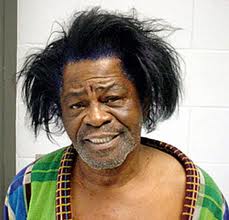 At the time Brown - a legend in music
for 30 years since his first hit Please Please Please in 1956 - was
no crazy kid. He was a crazy 55-year-old who had used PCP off and on
for about 10 years and had fallen into a full-blown addiction. He was
smoking the stuff every couple of hours.
At the time Brown - a legend in music
for 30 years since his first hit Please Please Please in 1956 - was
no crazy kid. He was a crazy 55-year-old who had used PCP off and on
for about 10 years and had fallen into a full-blown addiction. He was
smoking the stuff every couple of hours.
He was sentenced to six years, emerged after almost three and seemed reformed. Until he was arrested for possession of drugs and guns in 1998.
Soul Brother No 1 has had a rocky road and now, at 70, things don't seem much better. In May last year, South Carolina's Probation, Parole and Pardon Services board unanimously granted Brown a pardon for seven convictions over a 10-year period, most involving weapons.
Last July he placed an advertisement in Variety to announce that he and his 33-year-old wife Tomi Rae Brown had made "a mutual show business decision" to "go their separate ways". In January, he was arrested on charges of assaulting her and there was outrage that he had reoffended only months after his pardon.
On Wednesday, a judge ruled he must face a jury trial despite the protestations of his attorney, who said Brown and his wife were living together again. If convicted of assault he faces a maximum penalty of US$500 ($770) or 30 days in jail.
Yet in some ways Crazy James is also the embodiment of the American Dream. The baby stillborn (but revived) into poverty in South Carolina and raised in Augusta, Georgia, served time for breaking into cars, but emerged at 19 to become one of the most recognisable men in popular music.
He is one of the most sampled of all black acts, his band nurtured the talents of Bootsy Collins, Pee Wee Ellis and Maceo Parker, and he fought his way back into the charts through disco and bankruptcy.
Brown's climb to stardom was built on the back of great music. His signature song Please Please Please was initially only a regional hit, but is "a milestone in the history of secularising the gospel spirit", according to Tony Cummings, founder of Soul magazine. He followed it with his million-seller Try Me in 1958, I'll Go Crazy in 1960 and the aching confessional ("I'm so weak, I'm so weak" ) of Lost Someone in 1961.
With his disciplined band the Famous Flames - fines for lateness and unpolished shoes - he toured constantly. They became the hottest attraction on the circuit and Brown was known as "Mr Dynamite" and "Soul Brother No 1". Yet he still had to self-fund his Live at the Apollo album recorded in October 1962 because his record company didn't think there was a market for live albums. It went to number two in America and stayed on the charts for 68 weeks. And the hits kept coming: Poppa's Got a Brand New Bag and I Got You (I Feel Good) in 1965, the ballad It's a Man's Man's Man's World the following year, Cold Sweat and Ain't It Funky Now at the end of the 60s.
But Brown was more than a showman with big hair, funky dance moves and the ability to do the splits - he was also a cultural icon. In 1968 he agreed to have one of his concerts televised after Martin Luther King was murdered.
He appealed for calm in the ghettos and was so effective in restraining the tide of black anger that it was repeated immediately the show finished. He was rewarded with dinner at Lyndon Johnson's White House. At the same time however he also recorded the ghetto anthem Say It Loud, I'm Black and I'm Proud. Brown is a great defender of the American Way if a little wayward in his beliefs. He campaigned for the Democrat Hubert Humphrey but endorsed Republican Richard Nixon.
He styles himself as "the hardest-working man in show business", and offered the self-help assertion of I Don't Want Nobody to Give Me Nothing (Open Up the Door I'll Get It Myself). On Don't Be a Drop Out in 1966 he sang "without an education your mind is dead".
Unfortunately in the Eighties, Brown seemed to be killing his own mind. He is a remarkable survivor and an even more extraordinary musical talent. His catalogue of greatness includes song titles which have made it into popular consciousness: Papa's Got a Brand New Bag, Get on the Good Foot, Talking Loud and Saying Nothing and I Feel Like Being a Sex Machine.
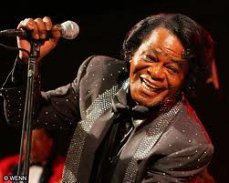 He is a miracle of music - and he's on
his way here. Of course, we've been down this path before. In 1988 he
was scheduled to headline the Neon Picnic but that went belly-up.
Then in 1995 he was scheduled to play an Ericsson Stadium concert in
Auckland but it never happened.
He is a miracle of music - and he's on
his way here. Of course, we've been down this path before. In 1988 he
was scheduled to headline the Neon Picnic but that went belly-up.
Then in 1995 he was scheduled to play an Ericsson Stadium concert in
Auckland but it never happened.
Seasoned promoters said Brown didn't have the pulling power his legendary status suggested. It was a messy debacle (Brown did no pre-tour interviews except an unscheduled one with Real Groove), and things haven't improved much since: three pre-tour phone interviews for the Herald this time were postponed, the first for no given reason, second because his 87-year-old mother had died, the third because he had to keep a physio appointment.
Finally we got him - for a full eight minutes. Okay, telephone ain't what the man does. What he does is get on the good foot and deliver legendary soul-funk. And that he does better than most.
Among those who know Brown's music there is genuine excitement at the prospect of this genius of modern music making it here this time. I'll be there despite my "interesting" experience at Radio City. And I won't be leaving until the man is helped from the stage for the last time.
CONCERT REVIEW
JAMES BROWN, ST JAMES THEATRE
AUCKLAND 2004
Well, despite doubts because of his unpredictability, the Godfather of Soul, the Hardest Working Man in Show Business came. James Brown, in our town. And when he played it was before a capacity crowd which was high - and some clearly liquored - on expectation. Although no one knew quite what to expect from a man who is seventysomething.
But after the obligatory comping by the big band and the build-up when we were encouraged to yell "James Brown" suddenly he was there, a diminutive figure in a dark suit with frilled epaulets, a thick mane of hair and a radiator of blazing white teeth.
In many ways - because he has the copyright on soul-funk grooves - James Brown the Singer is incidental to James Brown the Event.
And last night was an event, it certainly wasn't about the singer.
His voice was short of the raw power it once had and he would sing off-mike, reduce classic songs to their essence (the choruses) and let the band do much of the work. A stranger stumbling in would be forgiven for thinking Brown was the saxophonist, such was the amount of stage time he commanded. (And with those crowd-pleasing solos which end up with a predictable piercing shriek.)
He also let one of his hair-tossing female proteges take centre-stage for an overlong bracket while he conducted the band or held his place behind the keyboards. A mate quipped, "the hardest shirking man in show business".
But at other times it was Brown's show exclusively. His treatment of Try Me and It's A Man's Man's Man's World - both favouring his lower register and in breath-saving ballad style - were terrific. And when he got the grooves going he delivered the classic funk-soul - the long Sex Machine at the end - that his formidable reputation rests on.
But Brown mostly wasn't up front, he sometimes seemed to be making cameo appearances at his own show. Did it matter? Not really. The man is a legend and his audience was there to dance, worship, and just be in the presence of the Godfather.
And that, as Mr Brown's lengthy career is testimony to, probably makes any criticism redundant.
James Brown, in our town. Awriiiight!
For more on James Brown's career and music go here.



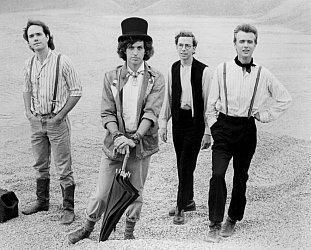
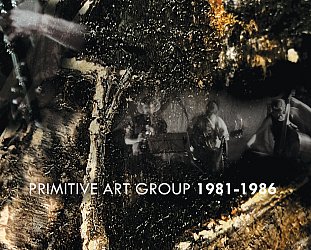
post a comment